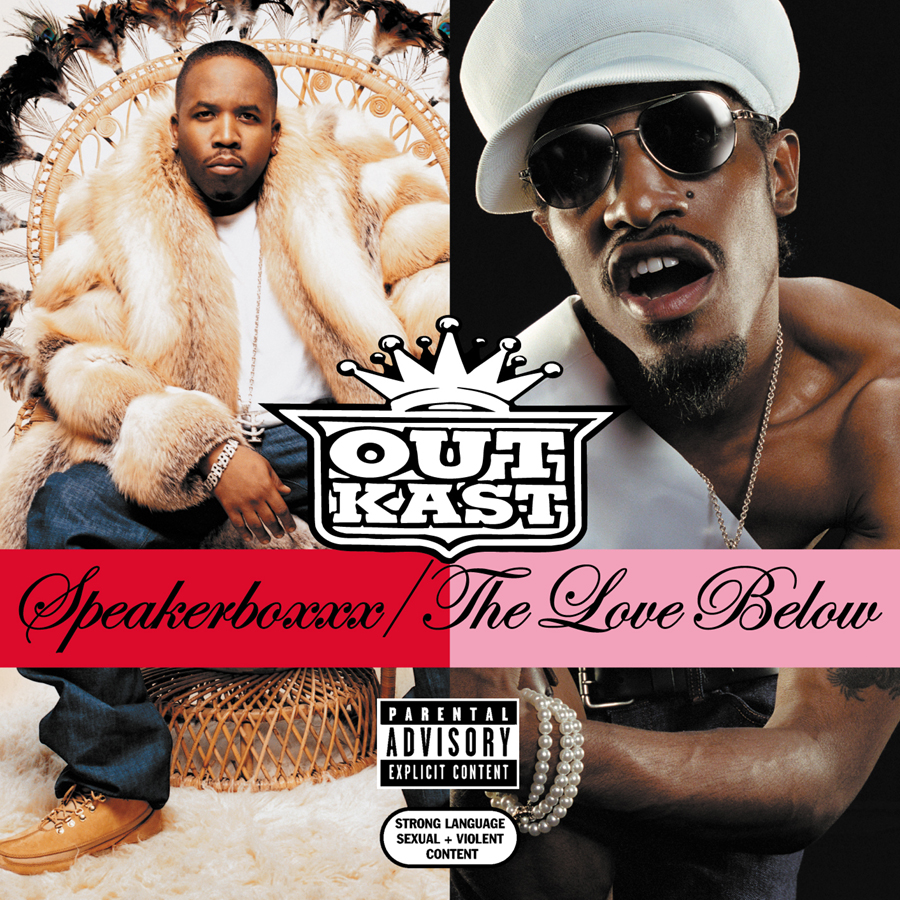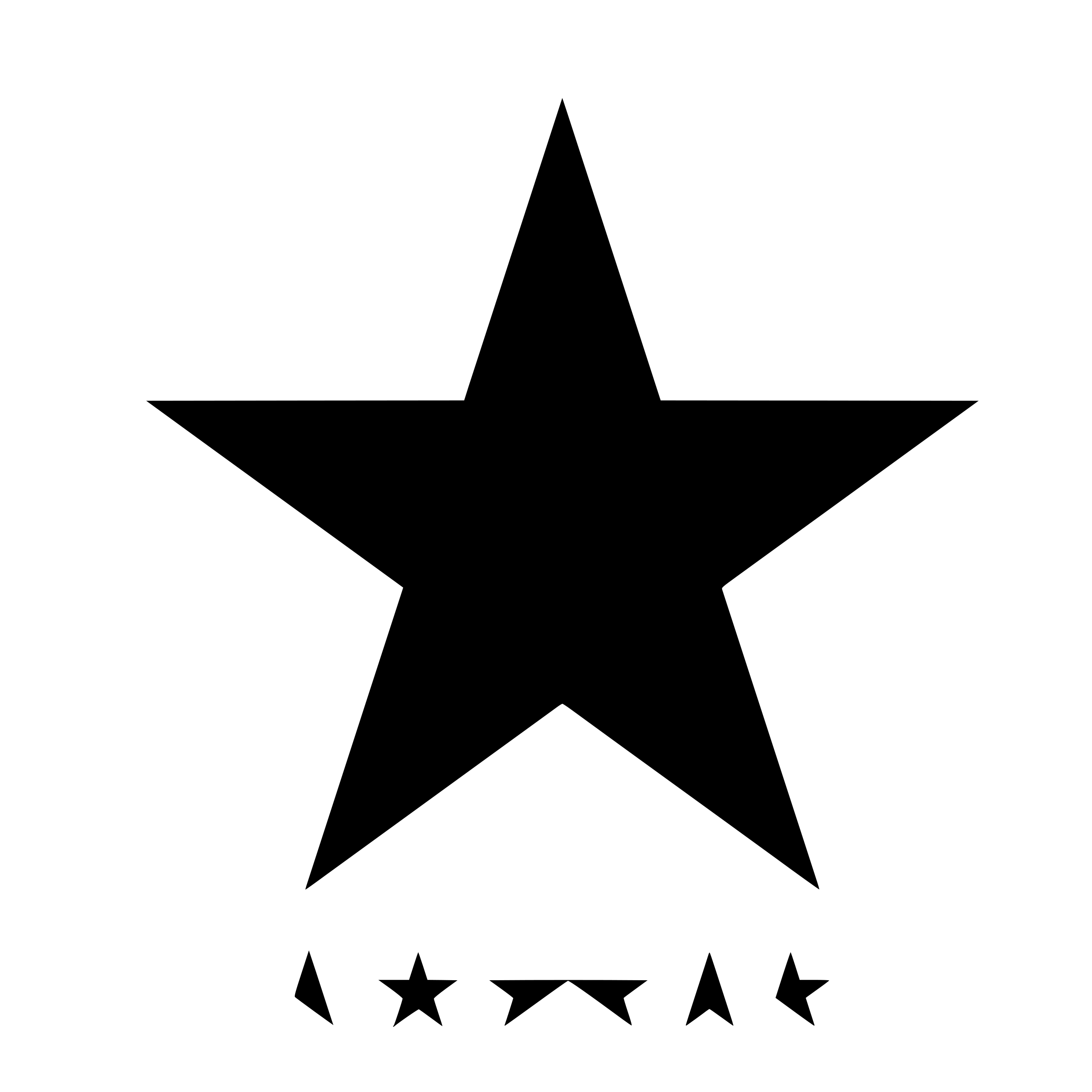While visiting my alma mater last week, I spent some time working from the back room of a coffee shop, the same room where I used to drag my acoustic guitar on stage for open mic night when I was in college. That room dredges up lots of memories, but none of them are as simultaneously triumphant and embarrassing as the one where I strum and sing my way through a cover of "Hey Ya!" -- triumphant because people ate that shit up (BMOC!), embarrassing because I was a walking cliche. Let's face it, if there's anything more cliche than playing acoustic covers at your college open mic night, it's covering "Hey Ya!" at open mic night during fall quarter 2003. What's cooler than being cool? Not covering "Hey Ya!" at open mic night, that's for sure.
In my defense, who could resist the charms of the Best Song Of The Millennium -- who especially among those of us with functional knowledge of basic guitar chords and a desire to win the approval of our peers? The song was everywhere that fall. I remember attending a Radiohead show with some friends on the Hail To The Thief tour, and all any of us could talk about before the band came on was that great new Outkast song. It certainly is great, and not just in terms of Grammys (Best Urban/Alternative Performance), chart history (twentieth best selling single of the aughts) or cultural reverberations (it paved the way for fellow Atlanta rap veteran Cee-Lo Green's entire second career). It's just plain great on its own terms, the terms of universal human experience. No use trying to fight it: "Hey Ya!" is a pop masterpiece, cartoonish though it may be. It's got the fire, the hooks, the squelching bass, the gleeful chorale, the propulsive rhythm, the insta-meme quotables. It's got the juice, as a Chicago kid who probably grew up idolizing Andre 3000 might put it. It comes on at a wedding, and no matter how much you might not want to dance at that moment, you relent. Alright alright alright alright alright alright alright alright alright alright alright alright alright alright.
If only the album it's attached to wasn't such a noxious turd -- The Love Below, that is. I've got love for Speakerboxxx, Big Boi's contribution to the pair of solo projects Outkast released as a package 10 years ago today, but we'll get to that shortly. In the meantime, let's put clothespins on our noses and revisit Three Stacks' pinched loaf.
The Love Below is an attempt at the kind of funkadelic genre mash Janelle Monáe successfully pulled off with The Electric Lady 10 years later. It was probably a big influence on Monáe, actually. But whereas The Electric Lady is electric indeed, its sprawl continually pushed forward by kinetic songwriting and the unyielding force of its star's personality, The Love Below is like being trapped in an elevator with a Prince impersonator who refuses to break character. Every song seems like it could have grown up into something special if it hadn't been smothered by affectation. The result is that only a few moments hold their own against Outkast's otherwise exceptional discography.
Other than "Hey Ya!", the best track by far is the Big Boi-assisted synth-funk powerhouse "Roses," and even that one stanks like misogyny (or, in Andre's unfortunate parlance, "like boo boo boo") thanks to the excessive "bitch" bombs. The same uncomfortable undertones percolate beneath the otherwise enjoyable G-funk crooner "She Lives In My Lap." Dré's not in peak rapping form here, but compared to the rest of the record, the rare instances when he does opt to spit are revelatory: the third act of "Happy Valentine's Day," the middle of the jazzy drum-machine banger "Spread," and especially the lengthy autobiographical closer "A Life In The Day Of Benjamin André," which addresses Andre's relationship with Erykah Badu head-on. I hate to sound like those people who complain about Jonny Greenwood not playing enough guitar on latter day Radiohead albums, but in these moments it's clear Andre is squandering his gift on this melange of failed experiments and forced genre exercises.
Wobbling opener "Love Hater" is cocktail jazz from a nightclub where you can't pay your tab and scram soon enough. "Dracula's Wedding" basically invented Gnarls Barkley -- and not the glorious "Crazy" side of Gnarls Barkley; the clenched, whispery micro-soul retail boutique music side of Gnarls Barkley. "Vibrate"'s zonked-out mood music is sleepy in the wrong way. Andre's outsized persona squashes the otherwise pleasant Norah Jones guitar ballad "Take Off Your Cool." A DnB/jazz hybrid instrumental version of "My Favorite Things" could have only come from a man in desperate need of an editor. And I can't imagine a more oppressive rap skit than Andre and Farnsworth Bentley reciting a "Who's On First?" knockoff in strained British accents. What's worse than listening to this stuff is realizing its success probably encouraged Andre to go through with Idlewild.
It's a shame rock fans like me wasted hours and hours trying to parse The Love Below when we could have been indulging in Speakerboxxx, a wonderfully scenic bridge from Stankonia to Big Boi's proper solo debut Sir Lucious Left Foot: The Son of Chico Dusty. There's 2003's other ubiquitous Outkast single, "The Way You Move," of course, but that's barely a highlight compared to the rest of the sonic wonderland Daddy Fat Stacks inhabits here. The opening sequence is an ecstatic reminder of Outkast's strengths: the spastic digitized aggro-phonk of "GhettoMusick"; the moody grooves of "Unhappy"; the post-Parliament swagger of "Bowtie." The rest of the record adds shades and contours to that world, presenting a fully realized idiosyncratic vision rather than a desperate splatter of intentional weirdness. Putting Jay-Z and Killer Mike on the same track is Big Boi's own superior version of strange.
Speakerboxxx was our first indication that Big Boi could thrive without his partner. Andre was always the more colorful character, the one who nabbed people's attention outside hip-hop circles. It's fair to wonder if Big Boi could have ever crossed over to pop and indie audiences without Andre to kick in the door for him. But in terms of producing classic music, it seems like Andre needed Big Boi a lot more than Big Boi needed Andre. Whereas Andre works best with a foil to ground his outré impulses (see: his flurry of spectacular guest spots in recent years), his buddy Antwan Patton can stomp through banger after banger of his own with workmanlike power and precision. He knows exactly who he is, and he understands the balance between artful experimentation and accessibility that made Outkast so iconic. He gets that a gifted rapper doesn't have to abandon hip-hop to be an iconoclast. The Love Below panders to a concept of maturity that relegates rap to a lesser art form, a theory Speakerboxxx repudiates with a strut and a scowl.
Still, even the immensely satisfying Speakerboxxx can't hold its own against Outkast's previous records. Even though Big Boi and Organized Noize had Outkast's winning formula down to a science, that sound just isn't as explosive without Andre in the mix. To paraphrase their last shining moment together before splintering completely, the whole world loves it when they do get down. There was a powerful push and pull driving "Rosa Parks," "B.O.B.," "ATLiens," and all the other big hits. On Speakerboxxx, the absence of that friction resulted in the codification of that signature sound into something satisfying but not exactly breathtaking. In hindsight, separating the duo into its component parts mostly just demonstrated how special their partnership was. A decade later, it's about time they stopped depriving us of that.






